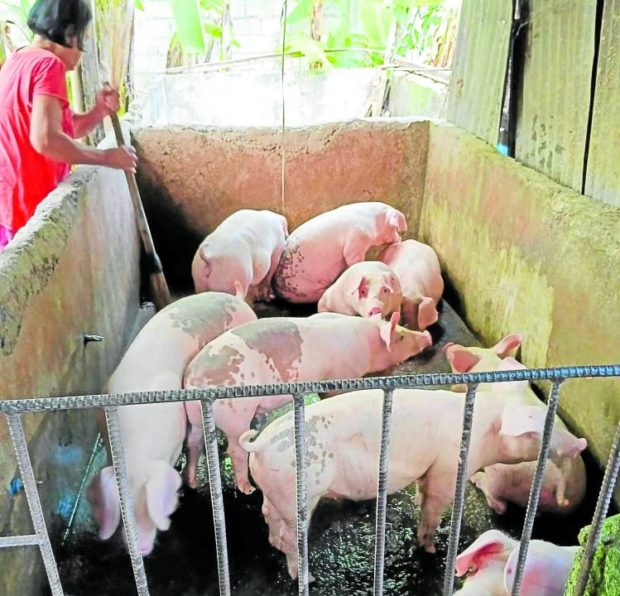Cebu governor bans unsanctioned ASF testing, threatens to arrest violators

CEBU CITY — Anyone who conducts unauthorized testing and culling of pigs in Cebu may face arrest.
Cebu Governor Gwendolyn Garcia on released a memorandum that prohibits agencies, including the Bureau of Animal Industry (BAI), from collecting samples of blood, serum, tissue, or any other organ of pigs amid the reported cases of African swine fever (ASF) in some parts of the province.
According to the governor, only the municipal or city agriculturists and veterinarians or their authorized personnel can perform the testing.
“The mayor and the PNP are called upon to monitor the strict implementation of this memorandum,” she said in the memorandum.
Lawyers of the Cebu provincial government said the police can arrest individuals or even those from the BAI if they insist in implementing their policies anywhere in Cebu.
“I am calling on all the mayors of the Province of Cebu, I am reminding them that I did issue this memorandum last 22nd of March 2023. (To) the Mayors and the PNP, and I am calling on the provincial director, Col. Rommel Ochave, and all chiefs of police, they are called upon to monitor the strict implementation of this memorandum,” Garcia said in a press conference together with Capitol lawyers on Monday.
“And so anybody else conducting random testing regardless of whether or not they come from national government agencies, in this case the Bureau of Animal Industry, they cannot do this under this memorandum. You shall prevent them because they have not complied with what is very clear under the Local Government Code.”
Under Republic Act 7160 or the Local Government Code, national government agencies should consult and coordinate with the local governments before they can conduct their programs or projects.
“They (BAI officials) can be charged with simple disobedience, for disobedience to a lawful order. The police can tell them not to do it and if they insist, that is disobedience,” said lawyer Rory Jon Sepulveda, one of the provincial government’s legal consultants.
Another capitol lawyer, Benjamin Cabrido explained that the police just have to show a copy of Garcia’s memorandum to those who want to conduct testing or culling of pigs.
“(If they insist in conducting what is prohibited under the order), right then and there, it is in flagrante delicto (caught in the act). They can be arrested,” he said.
The BAI has begged off from responding to Garcia’s tirades.
According to the National Meat Inspection Service, ASF is a highly contagious viral disease that affects pigs, warthogs, and boars.
It causes pigs to have high fever and lose their appetite, and causes hemorrhages in the skin and internal organs.
Pigs die in a span of two to 10 days upon infection. There is no known vaccine yet against ASF.
Health officials, however, stressed that ASF does not pose any threats to humans and that other pork products from infected areas are safe to eat.
Cebu lost its status as an ASF-free province on March 1 when BAI detected the virus from samples of slaughtered meat in Carcar City.
Last March 20, the BAI reported the presence of the ASF in the cities of Cebu and Bogo, as well as in the towns of Liloan, Sibonga, and Tuburan.
On March 27, the BAI added six more localities that were infected with ASF. These were the cities of Mandaue, Lapu-Lapu, and Talisay, and the towns of Cordova, Minglanilla, San Fernando.
Last May 29, Garcia sued officials of BAI over the alleged mishandling of the ASF in the province.
Garcia threatened to file more charges against BAI officials for releasing more test results without consulting the provincial government, citing provisions of the Local Government Code.
This time, she said the province may ask for the preventive suspension of erring BAI officials.
“One thing that I can tell you, there are no massive deaths of pigs. There are, however, attempts (to present) Cebu and its P11-billion industry in a bad light, sabotaging our hog industry sales for some strange and sinister reasons,” the governor said.